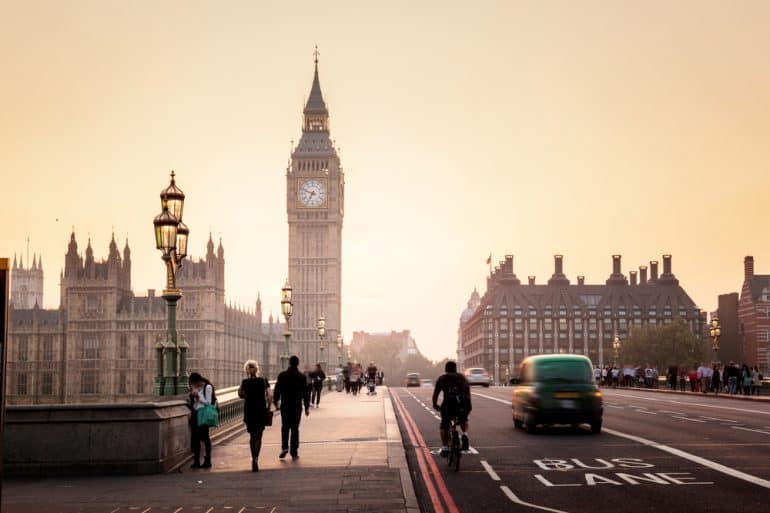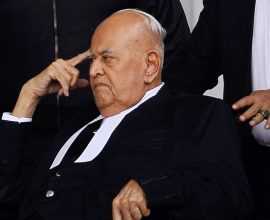Can the courts stop a prime minister from suspending Parliament? [Part-1: Johnson prorogues Parliament]
They can – as did the UK Supreme Court on 24 Sept 2019. The Court ruled that the PM Johnson’s advice to the Queen to suspend (‘prorogue’) Parliament had been unlawful. The Court declared that Parliament could resume its work. This case is historic. The effect of this case will be felt for centuries. Why? Read on …
The history behind Brexit
After decades of Euroscepticism but driven by its declining global influence and economy, the United Kingdom became a member of the European Union in 1973.
Four decades later, some politicians became frustrated with the growing influence that EU exerted over the UK. They wished to have UK’s relationship with the EU ‘reconsidered’.
When he became Prime Minister, David Cameron thought the UK would be ‘stronger, safer and better-off by remaining a member of the EU’. However, calls for a referendum were persistent.1Metro News: HTTPS://Metro.co.uk/2018/12/11/David-Cameron-call-referendum-Brexit-8231803/
Cameron’s appeasement, leading to the 2016 Referendum
To appease these criticisms, Cameron promised that if the Tories won the 2015 general election, he would call for a referendum on Brexit.
The Tories swept into power in 2015. Cameron delivered his election promise. The UK held a referendum. The result was that 51.89% of the UK voted to leave the EU (‘Brexit’).
Although the referendum was not legally binding, the Government bound itself to honour the result.2Paragraph 7 of the grounds of judgement in R (on the application of Miller v The Prime Minister [2019] UKSC 41
Cameron had to resign.
The 2-stage Withdrawal Process
Theresa May took over as PM.
To her was left the duty to negotiate a dignified withdrawal from the EU. It was a two-step process.
Under EU law, a member state had first to ‘notify the EC’, and leave within two years.3The machinery for leaving the European Union was in Article 50 of the Treaty on European Union
Second, after the notification, the EU was to conclude an Exit Agreement with the member state.
This came to be known as ‘Brexit with an agreement’.
On 2 October 2016 Theresa May, as prime minister, expressed her intention, to give notice under Article 50 of the Treaty on the European Union.
Theresa May is challenged, and overcome
One Gina Miller challenged the Prime Minister’s decision.
She filed a suit. Miller was successful.
The Supreme Court ruled that the Government had no power to withdraw from the EU without Parliament’s permission.4 R (on the application of Miller and another) Respondents v. Secretary of State for Exiting the European Union (Appellant), on 24 January 2017
Parliament passes laws that all Exit Agreements require its approval
Soon, Parliament passed a raft of laws.5European Union (Notification of Withdrawal) Act 2017, the European Union (Withdrawal) Act 2018, and the European Union (withdrawal) (No. 2) Act 2019
A pivotal provision required the Government to get Parliament approval before it entered into any withdrawal agreement.6 Section 13 of the 2018 Act
The ‘exit date’ was the date for leaving the EU. On three occasions, the UK government asked the EU for an extension of time. The extensions were granted.
Eventually 31 October 2019 was set down as the third exit date.
On that day, the UK would have to leave the European Union – with or without a Withdrawal Agreement. [The EU has not said that it will not grant further extensions beyond 31st October].
Boris Johnson takes over as Prime Minister
Theresa May’s position became increasingly untenable.
All her efforts to strike a deal with the EU, and have it approved before Parliament, failed – thrice.
On 7 June 2019, she resigned
On 24 July 2019, the Conservative party – not the nation – elected Boris Johnson as its leader.
Ultimately, he became Prime Minister. He thought he had a short answer to the whole problem.
Parliament opposes the PM Johnson’s desire for a ‘No Deal Brexit’
Johnson had often expressed a view that the only way to break EU’s obstinacy would be to threaten the EU that the UK would leave ‘without an agreement’.
So, he prepared for a ‘No Deal Exit’.
A majority of the members of Parliament did not support a ‘no-deal exit’.
They felt it would be injurious to the well-being of the UK.
The Prime Minister’s unhappiness with these Parliamentary obstacles is demonstrated in a document. There he noted,
‘The whole September session [of Parliament] is a rigmarole introduced… to show the public that MPs were earning their crust.… So, I don’t see anything especially shocking about this prorogation’.
So, Johnson exploits the Government’s prerogative power to prorogue Parliament
Boris Johnson wished to suspend Parliament so that it would not get in his way.
At 6.00 p.m. on Tuesday, on 27 August the PM telephoned the Queen. He advised that Parliament should be ‘prorogued’ on Monday, 09 September until 14 October 2019 – a period just over five weeks or 35 days.
The PM planned that the next ‘session’ of Parliament was to be open for business on 14 October 2019. The opening was, as usual, to be signified by the Queen’s Speech.
The Queen could not refuse the advice– it was an ancient prerogative that the PM possessed. (We will deal with what a prerogative is shortly).
On 28 August 2019, the monarch approved the prorogation.
The Lord Chancellor drew up Order-in-Council and issued it.7Paragraph 15 of the judgement
What did the Prime Minister say to Her Majesty the Queen?
While Supreme Court judges found that the Queen had been ‘acting on the advice of the Prime Minister’, they were not told what that advice had been based on.
The judgment states,
‘We do not know what conversation passed between them when he gave her that advice. We do not know what conversation passed between the assembled Privy Counsellors before or after the meeting. We do not know what the Queen was told and cannot draw any conclusions about it.’8Paragraph 15 of the judgement.
Apart from three precursory documents which gave no reason, no other documents were produced before the court to justify Boris Johnson’s decision.
There the mystery would remain until a fortnight later, when the facts would re-emerge.
Gina Miller and Scottish MPs challenge the Prime Minister
Gina Miller, who had earlier challenged Theresa May, again challenged Mr. Johnson’s decision. The High Court ruled that they could not look behind the exercise of the PM’s prerogative power to prorogue Parliament.
The court said it cannot – and would not – scrutinise it: it ruled that the PM’s act was ‘non-justiciable’.
North of the English border, beyond the Carter Bar, a group of Scottish MPs had commenced a similar suit, and on the same subject. The Edinburgh’s Court of Session reached an opposite conclusion. The court ruled that the PM’s advice had been ‘unlawful’ and intended to ‘stymie’ Parliament ahead of the 31 October Brexit deadline.9 https://view.e.bbcmail.co.uk/?qs=dc77659ef3a1cdb9b14fc58cc19fd535edd1bd9250ce066e3b7ea04fdc8a03b92541bf9a4b023d8221144c201ce3e717663b2c3122ae8cd5bc5eeda308ad5a69111fbf5c30c1d515][1][/mfn] Both these appeals were then brought before the UK Supreme Court, which gathered the maximum number of judges it could muster – eleven – and, over two full days, heard arguments. It sits for periods known as ‘sessions’.
What is the difference between a Parliamentary Adjournment, Prorogation and Dissolution?
The duration of a parliament is no more than five years.
The rest period between ‘sessions’ is known as a ‘recesses’: these are breaks that MPs vote on.
On the one extreme is the Adjournment. It is a routine break from Parliamentary activity.9https//:www.instituteforgovernment.org.uk, The Institute for Government
These breaks have no legal consequences.
At the other end of the scale is Dissolution.
A dissolution brings Parliament to a close. Parliament is customarily dissolved 25 days before a general election.
The legal consequences of dissolution are straightforward:
All seats in Parliament fall vacant; all parliamentary works come to a stop; all bills under discussion die a natural death. After elections, it is for a new parliament to decide what laws it will make.
Between these two limits is Prorogation. It marks the end of a session.
It brings to end (almost) all parliamentary business for that session. It is in fact a suspension of Parliament.
Prorogation also has legal consequences:
Most bills, all motions, and all parliamentary questions –come to a close. Parliament cannot carry these over to the next session.
All old bills, if they need to be revived (they rarely do), must be re-introduced as fresh bills, and debated upon all over again.
Parliament, because it is busy, rarely does this.
What is Prerogative Power?
Prerogative powers are ancient common law rights.
At first it was a right that belonged to the monarch, and so came to be known as a ‘royal prerogative’. It is one of the many sources of legal power. 10The other are common law, including and constitutional principles and conventions, laws made by Parliament, the customs of the realm. See for e.g. Case of Proclamations (1611) 12 Co Rep 74 at 75; also [1610] EWHC KB J22, p.2
Over hundreds of years, when the power to rule eventually passed from the monarch to a democratically elected parliament, some of these prerogatives powers found their way into the hands of the Government.
The courts have accepted the existence of these powers. Some have been preserved into written law, others have remained in the common law.
One such power is the power to prorogue parliament: it lies in the hands of a prime minister.
If he advises the Queen to suspend Parliament, Her Majesty cannot refuse his request.
Where the Government claims prerogative rights, ‘the officers of the Crown … must make out clearly the prerogative’.11Ibid, fn.7
These were the principles that were at the forefront of the Miller case.
The Court asked itself a few questions
When the Miller case came before it, the court approached the dispute by asking itself several questions.
Q-1: Could a court scrutinise whether the PM’s advice to the Queen had been lawful? [The ‘Justiciability’ Point]
The question, said the court, was whether the Government’s exercise of its prerogative powers – even if it was within the legal limits – challengeable in the courts?
What the UK Government Lawyers argued before the court
The Government’s lawyers argued that the questions raised over the PM’s conduct were not legal questions, but political ones.
They complained that the exercise of the PM’s power was a matter of ‘high policy’, and that the courts should not hear any challenges over them.12R v. Secretary of State for Foreign and Commonwealth Affairs, Ex p Everett [1989] QB 811, 820
The Prime Minister, they said, was accountable only to Parliament, not to the courts. They urged that the ‘courts should not enter the political arena’, but ‘should respect the separation of powers’.13Paragraph 28, Judgment
Citing a 300-year old statute, they argued that what happened in Parliament could not be questioned in any court: Article 9 of the Bill of Rights, 1688.14Article 9 provides: ‘That the Freedom of Speech and Debates or Proceedings in Parlyament ought not to be impeached or questioned in any Court or Place out of Parlyament.’ A Scottish equivalent says the same thing in the Claim of Right of 1689, an Act of the Parliament of Scotland: ‘That for redress of all greivances and for the amending strenthneing and preserveing of the lawes Parliaments ought to be frequently called and allowed to sit and the freedom of speech and debate secured to the members.’
We now turn to examine how the Supreme Court resolved these issues.
You will see that in [Part 2 of 2], here.
[The author expresses his gratitude to Mr. Andrew Newton, Ms KN Geetha, Miss Shalini Ragunath, Mr. GS Saran, Mr. JP Kirat, and Miss KP Kasturi].





